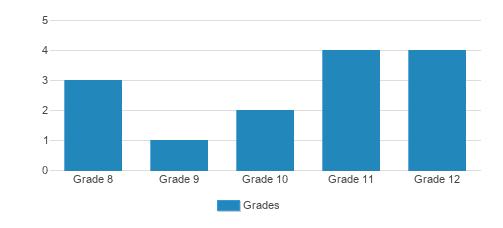Charis Youth Center's mission is to provide therapeutic, residential, educational, and vocational services to the Learning Disabled and Emotionally Challenged population between the ages of 13-22 years.
This special-needs population includes adolescents and their families; adolescents in transition to lesser restrictive environments through the Transitional Housing Program; case-managed, independent-living young adults, 18-22 years of age; and re-entry young adults in preparation and linkage to community-support agencies for their transition into society as productive and contributing citizens.
Quick Stats (2025)
- School Type: Special Education School
- Grades: 7-12
- Enrollment: 16 students
- Average class size: 12 students
- Application Deadline: None / Rolling
- Source: Verified school update
School Overview
School Type
School Membership(s)School Assoc.
Religious Affiliation
Grades Offered
Grades 7-12
Summer School Offered
Yes
Student Body
Total Students
16 students
Student Body Type
Co-ed
% Students of Color
40%
State avg.: 51%
Students by Grade

Academics and Faculty
Total Classroom Teachers
2 teachers
Student : Teacher Ratio
8:1
National avg.: 13:1
Average Class Size
12 students
Classroom Dress Code
Casual
polo shirt and jeans/slacks
Tuition and Acceptance Rate
Admission Deadline
None / Rolling
Tuition Notes
Education is paid by the student's district.
Admissions Director
Sherry Shewcraft
Source: Verified school update
Frequently Asked Questions
When is the application deadline for Charis Youth Center?
The application deadline for Charis Youth Center is rolling (applications are reviewed as they are received year-round).
School Reviews
Endorse Charis Youth Center. Endorsements should be a few sentences in length. Please include any comments on:
- Quality of academic programs, teachers, and facilities
- Availability of music, art, sports and other extracurricular activities
- Academic or athletic awards
Recent Articles

A Parent's Guide To Understanding High School Teaching Methods
This comprehensive guide helps parents navigate the various teaching methods used in today's high school classrooms. By understanding these approaches, you'll be better equipped to support your teen's learning journey, communicate effectively with teachers, and create a complementary learning environment at home.

February 08, 2025
Social Emotional Learning: Education's Hidden SymphonyA musician's perspective on Social Emotional Learning reveals how this educational framework orchestrates success through five essential emotional competencies.

January 24, 2025
A Roadmap For Starting A Private SchoolUse this roadmap as a set of talking points with your trusted mentors and professionals to start the private school of your dreams. You're not alone. Over the years, hundreds of folks like you have had the same dream. From Quintilian to Maria Montessori to Lucy Madeira Wing, visionary educators have established schools to teach according to their beliefs and methodologies.















